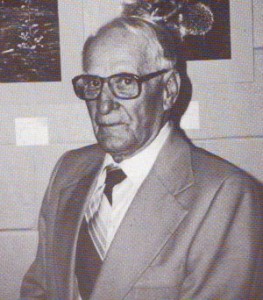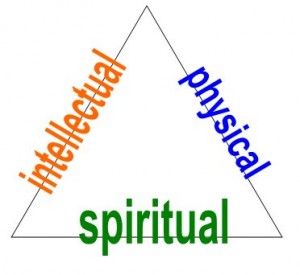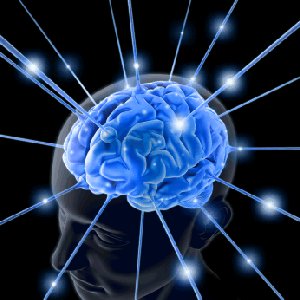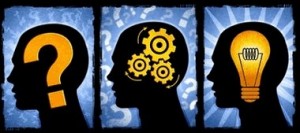Critical Thinking: Critics Welcome!
The Triangle Philosophy
 The late great Reverend John R. Chambers often described human beings as triangles. He likened the one side of the triangle to our physical needs such as clean air, good sleep, proper nutrition, exercise, and general good health. He likened the other side to our intellectual needs such as a need to teach, learn, study, reason, puzzle, and think. He likened the foundation of it all as our spiritual and emotional needs such as our need to love and be loved, our need to worship and praise, our need to fellowship and pray.
The late great Reverend John R. Chambers often described human beings as triangles. He likened the one side of the triangle to our physical needs such as clean air, good sleep, proper nutrition, exercise, and general good health. He likened the other side to our intellectual needs such as a need to teach, learn, study, reason, puzzle, and think. He likened the foundation of it all as our spiritual and emotional needs such as our need to love and be loved, our need to worship and praise, our need to fellowship and pray.
Using this metaphor, Pastor Chambers described a balanced life. Too much emphasis on any one side of the triangle and we quickly become imbalanced. The bottom of the triangle, the base, the foundation, is our soul. It must be broad enough to support the other sides of our nature for us to be balanced in life.
In our approach to life, and to parenting, Gregg and I embrace this philosophy. It is the human soul that masters and guides the flesh and all physical needs. In this way, the spirit can sometimes overcome and ignore physical limitations to perform superhuman acts of sacrifice, deprivation, strength, or heroism. It is the spirit that drives the intellect and  all intellectual pursuits, determining the filters we place on our interests, and setting the intellectual boundaries of whether or not we choose to compromise with the world on issues. It is the human soul that is the foundation of all motivation, learning, teaching, discipline, worship, emotion, and creativity.
all intellectual pursuits, determining the filters we place on our interests, and setting the intellectual boundaries of whether or not we choose to compromise with the world on issues. It is the human soul that is the foundation of all motivation, learning, teaching, discipline, worship, emotion, and creativity.
It is our desire that our children live balanced lives and grow into productive, successful, well-rounded adults. We strive to meet all of their needs whether physical, spiritual, or intellectual. Our children have the best possible nutrition, for example, that we can manage in order to feed their growing minds and bodies. They are deeply loved, respected, and afforded opportunity to worship in praise and fellowship. And they are very often intellectually challenged and engaged.
A great deal of the content of this website is dedicated to information pertaining to physical and spiritual needs. Hopefully, that provides some insight into how we, as parents, meet the needs of our children in those two very often overlooked areas. Keeping things in balance, we wanted to offer some insight into the most overlooked area, that being how we choose to meet their intellectual needs, as well.

Introduction to Critical Thinking
Critical thinking is that mode of musing about any subject, content, or problem in which the thinker improves the quality of his thinking by skillfully taking charge of the structures inherent in thinking and imposing intellectual standards upon those inherent structures. It means correct thinking in the pursuit of relevant and reliable knowledge about work, life, and the universe in which we exist.
Another way to describe it is reasonable, reflective, responsible, and skillful thinking that is focused on deciding what to believe or what actions, if any, to take.
Metaphor abounds. Humans have the ability to swim. Swimming can be described as survival-level, where a person struggles hard enough to keep his head above water, despite a lot of wasted effort. Or a person can be taught, learn, and practice swimming so that effort is economized for maximum gain, speed, and result. Some human beings never learn how to swim and others never learn to swim well. The same can be said of thought.
A three year study of 68 public and private colleges in California:
- Overwhelming majority (89%) claimed Critical Thinking as a primary objective in their instruction
- Very small minority (8%) could enumerate any intellectual criteria or standards they required of students, or could even offer an intelligible explanation of what those criteria and standards were.
Children are not born with the skills to think critically. Furthermore, left to their own devices, they will not naturally develop an ability to think beyond lower-level survival-level thinking. While thinking is a God-given human ability, Critical Thinking is a learned skill that must be taught, learned, and practiced — just like any other skill. Most individuals never learn the skill of Critical Thought over the course of their lifetimes.
Why does it matter?
A person who thinks critically asks appropriate questions, gathers relevant information, efficiently and creatively sorts through that information, reasons logically from the data, and comes to reliable and trustworthy conclusions about the universe which enables him to live and act successfully in it as a result. It matters because it is a large part of the basis for success in life.
Low-order thinking, survival level thinking, is that which enables us to calculate whether the cashier issued the correct change, whether to blow through a red light, and embrace the notion that we ought not drink rat poison. Metaphorically, this kind of thinking keeps one’s head above water.
Critical thinking is high-order thinking, enabling a person to responsibly judge between political candidates, serve on a murder trial jury, evaluate a society’s need for alternative energy, assess the consequences of various social movements, and embrace the truth while refuting lies.
Critical thinking enables an individual to act as a responsible citizen, one who contributes to society, not merely to act as a consumer of society’s many distractions. Think critically for a moment. Why do you think popular culture provides all those distractions in the first place?
In 2004, Robert H. Ennis, Professor Emeritus at the University of Illinois, developed what he calls the SUPER STREAMLINED CONCEPTION of Critical Thinking. Assuming that critical thinking is reasonable, responsible, reflective thinking focused on deciding what to do or believe, a critical thinker:
- Is open-minded and mindful of alternatives
- Tries to be well-informed
- Judges well the credibility of sources
- Identifies conclusions, reasons, and assumptions
- Judges well the quality of an argument, including its reasons, assumptions, and evidence
- Can well develop and defend a reasonable position
- Asks appropriate clarifying questions
- Formulates plausible hypotheses; plans experiments well
- Defines terms in a way appropriate for the context
- Draws conclusions when warranted — with caution
- Integrates all items in this list
The Thought Toolbox
 High on the list of our parental goals is teaching our children to think critically. If their brains were muscles, we want to coach them to lift bigger and heavier until both hemispheres become hypertrophied. In terms of thought, we want them to be Olympic Level Swimmers.
High on the list of our parental goals is teaching our children to think critically. If their brains were muscles, we want to coach them to lift bigger and heavier until both hemispheres become hypertrophied. In terms of thought, we want them to be Olympic Level Swimmers.
Our belief is that Critical Thinking is the mental toolbox that hosts a variety of thinking tools. The Laws of Thought, Sound Reasoning, Logic, and Applied Analysis are some of the bigger tools. We plan to teach our children how to use each of those tools.
Critical thinking is the intellectually disciplined process of actively and skillfully conceptualizing, applying, analyzing, synthesizing, and/or evaluating information gathered from, or generated by, observation, experience, reflection, reasoning, or communication, as a guide to belief and action. In its exemplary form, it is based on universal intellectual values that transcend subject matter divisions: clarity, accuracy, precision, consistency, relevance, sound evidence, good reasons, depth, breadth, and fairness.
It entails the examination of those structures or elements of thought implicit in all reasoning: purpose, problem, or question-at-issue; assumptions; concepts; empirical grounding; reasoning leading to conclusions; implications and consequences; objections from alternative viewpoints; and frame of reference.
–Statement by Michael Scriven and Richard Paul, 8th Annual International Conference on Critical Thinking and Education Reform
Future posts will focus on the specific tools teach our children to use, and give some of examples and lessons we use. Hopefully, this will serve as a blessing to you and yours.
Closing Thought
When one has perfect clarity of thought, one reaches undeniable conclusions purely by the act of thinking independently and critically. This is wisdom. (Proverbs 1:1-5)
For instance, one concludes that God is real, that His Holy Word is true, that He created the heavens and the earth, He destroyed the earth by water, He sent His Son, Jesus, to redeem the earth, and that He loves you and has a glorious purpose for your life.
Hallee
I’m so grateful for your visit, today.
You would bless me if you added me to your ![]() feed reader or subscribed
feed reader or subscribed  via email.
via email.
You can also become a fan on ![]() Facebook or follow me on
Facebook or follow me on ![]() Twitter. I would love to see more of you!
Twitter. I would love to see more of you!


Very interesting. I wonder who taught me critical thinking? I really doubt it was my parents. ;-)
I’ve been doing a lot of reading on health and healthiness, and mental health keeps cropping up in my reading. Doing math problems or solving critical thinking puzzles daily help boost your mind’s performance. Something I read recommended carrying a crossword puzzle around with you wherever you go and I thought of my mom — who is no longer challenged by “normal” crossword puzzles and now does New York Times crosswords from the 1920’s! LOL
We’re constantly feeding critical thinking questions to Kaylee and she craves them. It’s getting hard to keep up with her demand for more complex problems.